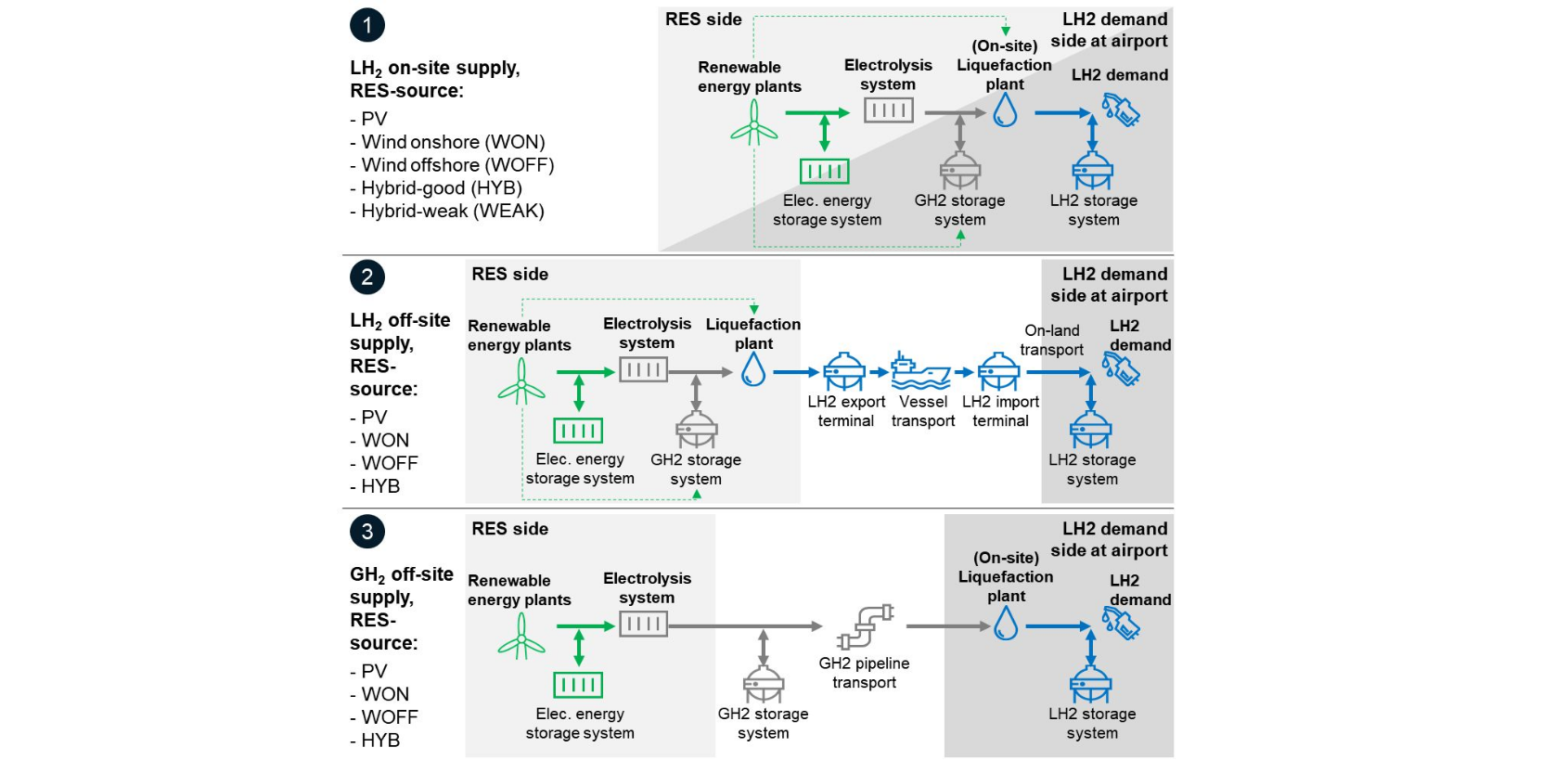New academic study on liquid hydrogen (LH2) cost scenarios for H2-powered aviation
The economic competitiveness of H2-powered aviation highly depends on the supply costs of green LH2 to enable true-zero CO2 flying. This study uses non-linear energy system optimization to analyze three main LH2 supply pathways for five locations. Final LH2 costs at the dispenser could reach 2.04 USD/kg in a 2050 base case scenario for locations with strong renewable energy source conditions. This could lead to cost-competitive flying with hydrogen. Reflecting techno-economic uncertainties in two additional scenarios, the LH2 cost span at all five airport locations ranges between 1.37 and 3.48 USD/kg, if H2 import options from larger H2 markets are also available. Import setups are of special importance for airports with a weaker renewable energy source situation, e.g., selected Central European airports. There, on-site supply might not only be too expensive, but space requirements for renewable energy sources could be too large for feasible implementation in densely populated regions. Furthermore, main costs for LH2 are caused by renewable energy sources, electrolysis systems, and liquefaction plants. Seven detailed design rules are derived for optimized energy systems for these and the storage components. This and the cost results should help infrastructure planners and general industry and policy players prioritize research and development needs.
Open Access Paper: https://doi.org/10.1016/j.ecmx.2023.100442
Supplementary Material: https://ars.els-cdn.com/content/image/1-s2.0-S2590174523000983-mmc1.pdf

